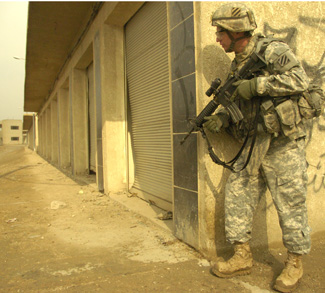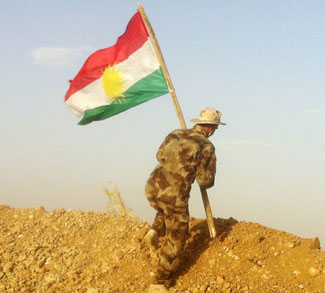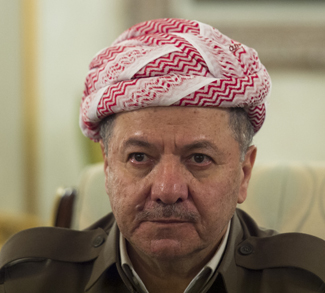Summary
The Iraqi Sunni insurgent groups recently allied with, and paid by, the Americans officially came under command of the Shi’a controlled Baghdad government on Wednesday. The American peace deal with the Sunni insurgent groups is seen as the single most vital factor in the de-escalation of violence in Iraq. However, the transfer of command is raising concerns of the possibility of renewed sectarian violence in Iraq.
Analysis
On Wednesday the Maliki government in Baghdad took over payment ($300USD per month) of 54,000 Sunni insurgents, part of the so-called Sons of Iraq Sunni militant alliance, the initial phase of a projected 100,000 Sunni militants allied with the U.S. expected to be absorbed by the Baghdad government. Many observers, including many members of the Sons of Iraq and their leaders, are nervous over the transfer of payment responsibility as Baghdad and the Iraqi national army are strongly controlled by the majority Shiites. The fear is that the transfer may not go as smoothly as hoped for, thus leading to increased sectarian tension, and possibly a recurrence of the sectarian violence that epitomized the recent Iraqi civil war.
The Sunni militia groups (commonly referred to as the “Awakening”) feel betrayed by the Americans since the transfer of payment responsibility will ultimately mean Baghdad, and thus Shiite, control of the Sunni militias. This fear has already begun to materialize as Baghdad has announced that it intends to take control of the checkpoints manned by the Sunni militias.
The Sunni militia groups, after fighting the American occupation forces, increasingly turned their attention to fighting the Shiite militias, Iraqi police (controlled and populated by sectarian Shia from the Interior Ministry) and, eventually, foreign fighters, including those aligned with al-Qaeda. The peace deal negotiated with the Americans allowed the Sunni groups to openly control their area of operations, which they did primarily through those very checkpoints. Losing the checkpoints to Baghdad’s control would mean conceding their primary defensive positions against attacks by al-Qaeda, Shiite militias or, even, the Baghdad army or police.
Further, al-Maliki has made it clear that he intends to decommission the Sunni militias. The Sunni groups are openly resistant to this call to disarm because it would leave them and their people completely vulnerable to attack, and utterly dependant on the goodwill of the Shi’a dominated Baghdad central regime for defence. Most groups have rejected al-Maliki’s demands, and it is unclear how he will enforce the order without resorting to using the Iraqi police or army against the Sunni militia groups, which would almost certainly re-ignite the civil war of just last year.
The problem is exacerbated by the fact that Baghdad has announced it plans on incorporating only 20% of the Sunni militants into its armed forces (hoping to re-train the remaining 80% for bureaucratic posts). That would mean that the Iraqi army would remain overwhelmingly Shi’a and, consequently, the Sunni areas, and Sunni lives, under control of the Shiites. Such a prospect lowers the probability that the Sunnis will willingly go along with such a plan, and raises the probability that sectarian tensions, and even violence, will result.
If the Sunnis view Baghdad’s plan as essentially a call to surrender, there is little reason to believe they will go along with it. And, even if they do, any untoward act of violence by the Iraqi security apparatus against Sunnis threatens to re-ignite sectarian violence. The end result of this transfer may very well determine whether or not Iraq can survive as a single state.
Manjit Singh is a contributor to Geopoliticalmonitor.com



